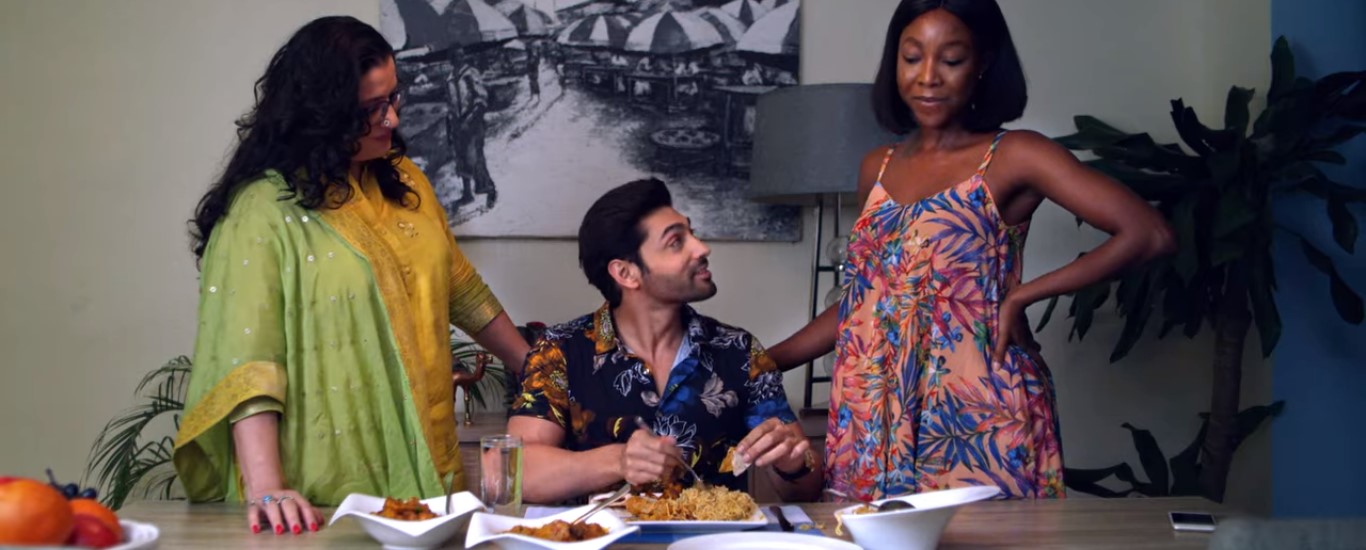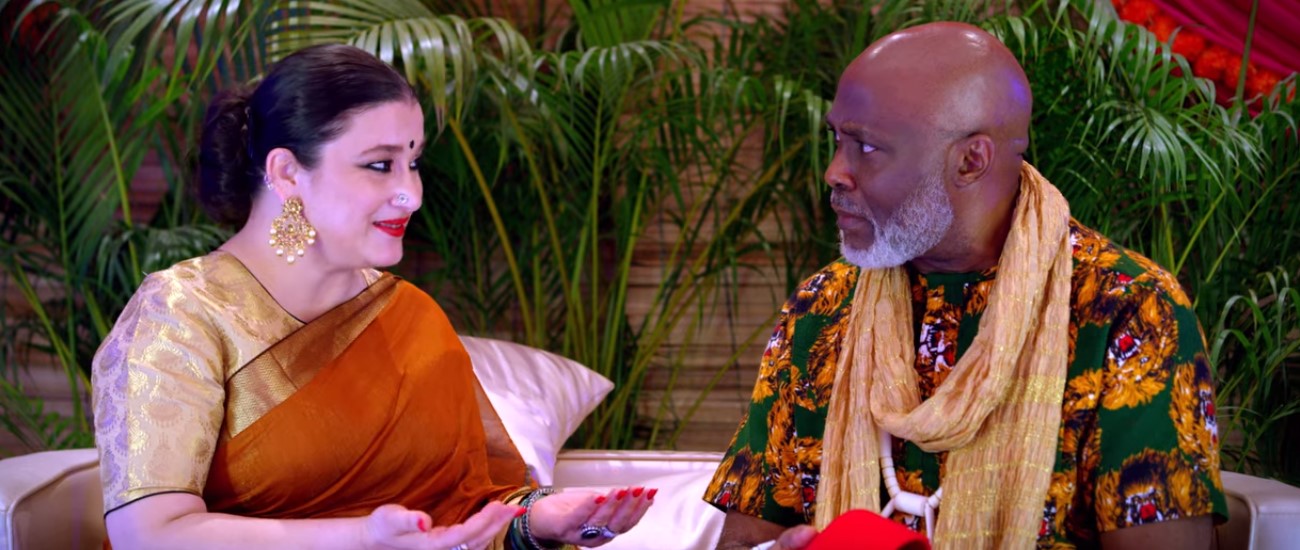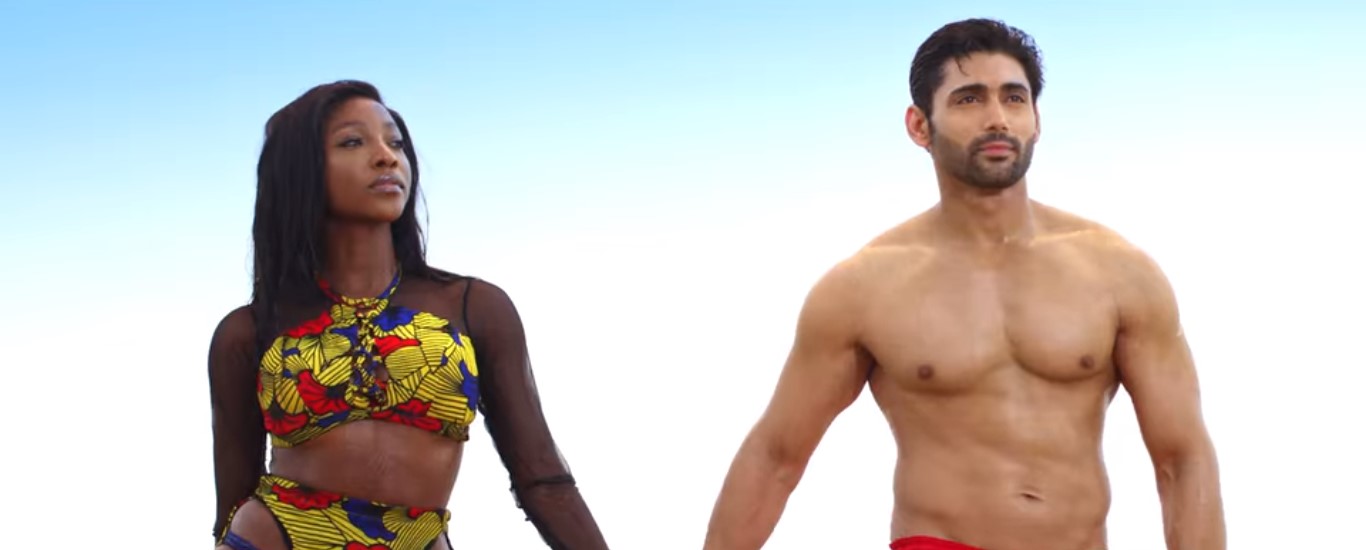‘Namaste Wahala’ is an Indo-Nigerian cross-cultural romantic comedy directed by debutant director Hamisha Daryani Ahuja. It is the story of an Indian investment banker, Raj (Ruslaan Mumtaz), living in Lagos, Nigeria, and a Nigerian lawyer, Didi (Ini Dima-Okojie) who fall in love with each other. Due to their vastly different cultural backgrounds, both their parents disapprove of their relationship. The cultural clash between the families of the two lead characters dictates the plot for most of the film while creating hurdles in their path. But the couple does manage to overcome the obstacles and unite in the end.
It is the second collaboration between the Indian and Nigerian film industries (after ‘J.U.D.E.’) and heavily features cultural elements from the two countries. Furthermore, the cultural and racial conflicts depicted in the film make a strong case for the possibility of it being inspired by true events. We did a little digging and found out if ‘Namaste Wahala’ is based on a true story.
Is Namaste Wahala Based on a True Story?
No, ‘Namaste Wahala’ is not based on a true story. Born to Indian parents, the film’s director, Hamisha Daryani Ahuja, was brought up in Nigeria. She quit her successful restaurant business to make her directorial debut. A fan of films from both Nigerian (Nollywood) and Indian (Bollywood) film industries, she was prompted to combine her favorite elements from Nollywood and Bollywood to create a romantic film that strives to depict both cultures with equal importance.

Naturally, the plot of the film builds upon the differences between the two cultures. Raj’s mother is appalled by his decision to marry outside his community, while Didi’s Father wants her to marry a Nigerian man. One would naturally expect the film to delve into the racial issues, but to keep it lighthearted, it only touches upon them. Although the racial differences are prevalent in the real world, they can only be sensed in the film due to a few scenes.
When Didi’s father, Ernest, meets Raj for the first time, he is shocked to find out the man his daughter loves is an Indian, and he not only disapproves of the relationship but also displays a strong disdain for Raj. However, as the plot progresses and Raj tries to impress Ernest, it becomes evident that his disapproval is not because Raj is an Indian but because he is not a Nigerian. This small distinction goes a long way from diverting the conflict from an issue of racial difference to a more cultural one.
While Didi enjoys her career as a lawyer, it is seen as only a hobby by her father. Her father wants her to get married and take care of the family business along with her husband. Raj assumes Didi will become a homemaker after marriage. Didi’s arc and struggles depict the real-world issues of an average Nigerian woman, whose fate is apparently being decided by men.
Raj’s mother, Reema, highlights the many issues from an Indian perspective regarding her son’s relationship with a Nigerian woman. In a country where love marriages and inter-caste marriages are a big taboo for many even in today’s day and age, Raj’s desire to marry a woman of a different religion, race, and culture, who is unaware of the Indian customs and traditional values, is highly disconcerting for Reema, an orthodox Indian mother.
Both the characters are helped by their friends Leila (Didi’s Indian friend) and Emma (Raj’s Nigerian friend) in bridging the gap between the two cultures. These scenes that help the characters understand each other’s cultures act as an undercurrent for the similarities between the two cultures. Despite both families having an educated and progressive background, they still uphold the conservatism of their respective cultures, and that is exactly what makes them similar.

Speaking about the idea behind the cross-cultural love story to Gulf Today, the director has stated, “I have lived in an Indian house, I know the Nigerian culture, the pidgin, the food and it is so interesting how even though everybody thinks with ‘Namaste Wahala’ the cultures are different, we are actually so similar. We are actually all one, and that’s the whole theme of the movie.”
Lead actress Dima Okojie also echoed these sentiments stating, “The thing(s) I love the most are the underlying messages which is the beauty in embracing your similarities, the beauty in embracing love even if you are from different backgrounds.” Despite the very real issues of race and cultural differences faced by inter-racial/cross-cultural couples, the film is a work of fiction that tackles these issues in a lighthearted way. The over the top characters, cheesy dialogs, and Bollywood style dance numbers work to set this film further away from reality.
Read More: Where Was Namaste Wahala Filmed?


You must be logged in to post a comment.